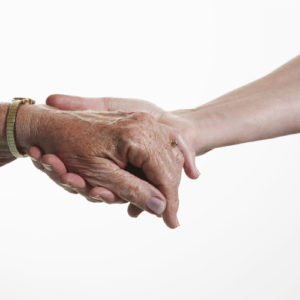Vulnerable populations in social work include children, the elderly, the poor, minorities, and people with disabilities. Part of overcoming adversity is having the presence of mind and the resources available to transcend one’s circumstances. Finding and reducing resource disparities common to vulnerable populations in the heart of social work.
The American ideology that drove massive immigration booms in the late 19th and early 20th centuries was flawed. The idea that anyone can succeed, regardless of income, race, or other factors conveniently omits a pressing detail. People born in the bleakest of situations can and have reached great levels of success, but they don’t “start” in the same position as ethnic majorities born in affluent areas.
Who Are Vulnerable Populations In Social Work?
Who are the most vulnerable in society? Race and income aren’t the only two determinants that can make a population vulnerable. A person’s age, gender identity, education level, health status, and many other factors can greatly affect their success.
A licensed clinical social worker must be attuned to the specific problems faced by vulnerable populations, who comprise the vast majority of their clientele. Let’s take a closer look at five of the most vulnerable populations and the problems that shape their circumstances.
1. Children

There are multiple sub-specialties under the social work umbrella that focus on problems faced by children. In a vast majority of cases, professional social workers must closely assess the family dynamics in the child’s home. Social workers that focus on this population include family social workers, child welfare social workers, and school social workers. In the case of abuse, social workers must balance advocacy for the child’s safety and protection. This includes the legal requirement to report abuse and also giving support for parents to encourage a healthy environment.
This population is vulnerable for several reasons. First, in the aforementioned case of child abuse, children are often too afraid to report their parents. Sometimes they are unaware that they have the option to do so.
They may feel conflicted, hesitating to report abuse out of loyalty to their caregivers. Abusive parents often take measures to ensure that their children don’t report them. These measures include the threat of greater punishment and manipulating them into believing the behavior is normal. This is especially prevalent in cases of sexual abuse, which is one of the most common forms you fave in social work.
According to DoSomething.org, one-third of all girls and one-fifth of all boys will experience sexual abuse before they reach eighteen. Beyond abuse, social workers also help children with many problems that also affect adults. These can include school relationships, traumatic events, healthcare, and also education deficits.
2. The LGBTQ+ Community

The now well-known acronym LGBTQ refers to a set of sexual identities: lesbian, gay, bisexual, transgender, and queer, respectively. In recent years, several other terms have surfaced surrounding sexual identity, including non-binary, and genderfluid. In all cases, these populations are regularly subject to discrimination on both a personal and societal level.
Transgender individuals, especially women of color, are disproportionately affected by hate crimes. In 2017, 29 transgender people were reported murdered. All groups within the LGBTQ community have experienced violence on an elevated scale, and the threat of it squanders their ability to thrive in communities all over the world.
On a political and institutional scale, LGBTQ individuals are subject to various forms of discrimination in the areas of employment, public health, housing, education, and other sectors. Ongoing legal battles about separate bathrooms for transsexuals, military service restrictions, and so on only complicate and confuse this community’s rights.
As a social worker, it’s important to understand that this population faces a very unique and frequently changing (because of ongoing policy changes) set of challenges and that each sex/gender identity within the community is its own population. A social worker in this area must be resourceful enough to find LGBTQ+ community support. And to connect disenfranchised members of this community with services that circumvent institutional and personal discrimination.
3. The Incarcerated

More than 2.3 million people are currently incarcerated in the United States and in need of social work. Prisoners suffer from increased rates of mental illness, depression, and suicide. They also battle learning disabilities, sexual harassment, and a number of other issues faced by the outside population.
This population is more vulnerable than most for multiple reasons. Prisoners have limited contact with the outside world. Their negative thought patterns worsen when they can’t reconcile with the people they hurt in the past. Their relationship with family and friends is weakened by their incarceration. They lose out on financial and educational opportunities.
Correctional social workers are vital in reducing the discrepancy between the number of prisoners that need help and the number of prisoners that receive help in our overcrowded penal system. In addition to assessing and justifying the need for mental health services, correctional social workers specialize in successful re-entry into society. Social work can entail several efforts, including but not limited to:
- Marriage and family counseling services
- Educational programs in prison
- Job and life skills training
- Drug and alcohol counseling
- Behavioral therapy
4. Low Socioeconomic Status

The correlations between education level, income level, homelessness, and socioeconomic status are so strong, it’s nearly impossible to statistically separate these terms. A vast majority of a social worker’s caseload will consist of clients who have experienced at least two of these four issues. According to First Focus, child poverty is a particularly potent cause of homelessness, dropping out of school, and even turning to crime.
Children who are poor are less likely to attend school regularly because of frequent changes in housing status, reliance on financial assistance, and lack of the necessary school supplies. This kicks off a downward spiral, involving the infrequent attendance of a low-income-area school that spends hundreds of dollars less per student than schools in other regions, a greater propensity for crime and a higher likelihood to become either incarcerated or homeless.
To best address the many issues correlated with low socioeconomic status, social workers must be thorough in their assessments. Poverty, lack of education and homelessness affect everyone differently, and each client has to be motivated in a way that compels self-sufficiency. The social worker should be coaching their way out of the client’s life, not the other way around.
5. The Elderly

Though the subject is not publicized as passionately as child abuse, elder abuse is a very common issue in the United States and other regions of the world. Aging and Gerontology Social Workers practice with the elderly. Many people picture a nursing home employee taking cash from an elderly person’s room, but elder abuse takes many other forms. Three of the most common include:
Neglect – Whether it’s a family member, caregiver or anyone else responsible for taking care of an elderly person, neglect involves the failure to provide the minimum level of health and safety. This includes hydration, food, shelter, hygiene, and so forth.
Physical, Verbal or Sexual Abuse – Like with any other population, the elderly demographic is not immune to physical, verbal and sexual abuse. This includes physical harm, verbal abuse (insulting, humiliating, threatening, etc.) and sexual abuse (inappropriate touching, sexual acts).
Financial Exploitation – The aforementioned nursing home scenario is a common example of financial exploitation of the elderly, but it isn’t the only one. Home caregivers and other members of the community can financially abuse the elderly by forging signatures, stealing, misusing entrusted assets and deceiving the person in any way for financial gain.
Tasks and Responsibilities Of A Social Worker
- Mental health and substance care for abusers and family members
- Developmental disabilities understand
- Physical disabilities
- Help with direct services for mental health
- Manage older adults with emotional challenges facing social justice issues
- Helping people with various health outcomes in the health care system
- Well being
Places Social Workers Can Work To Help Vulnerable Populations
- Police departments need social work in the criminal justice system
- assisted living facilities
- nursing homes geriatric social worker
- Non governmental organizations to help with various social services
- private practices
- Increasingly social workers are involved in health care facilities
- community centers
- correctional facilities
- Rape crisis centers domestic violence
- Foster care system
- Disease control centers to help with various social services
- Social service administration
- Family social worker
- School social workers
- Child welfare agencies
- Employee assistance programs
- Criminal justice social worker
- Mental health clinics
- National association of social work
Why Do Social Workers Learn About Vulnerable Populations?
The point of learning about the circumstances that affect different vulnerable populations is not to pigeonhole each client. Rather, knowing about vulnerable populations prepares social workers to apply appropriate interventions. Each case is unique in how the client responds to their problems, but the problems themselves tend to be very consistent across each group. For example, malnutrition is common among welfare recipients and depression is very prevalent within the LGBTQ community.
When a social worker combines thorough interviewing and assessment skills with thoughtful action, they can quickly and efficiently recognize common problems and solve them in a way that yields the best outcome for each client.
How Social Workers Support Vulnerable Populations
Social workers have a long tradition of providing care, fairness, and empathy for vulnerable populations. Such populations, which may include those who are elderly, disabled or chronically ill, homeless, chemically dependent, and/or victims of abuse, among others, often face economic, social, and political challenges that can limit their access to resources and put them in need of the help of a social worker.
Social workers understand how to best offer assistance to those in need, and they can provide a vast array of services such as assessment, counseling, case management, referral, and advocacy. Through person-centered approaches such as mixed methods case work and solution-focused treatments, social workers can draw on a broad range of resources in order to best understand each vulnerable population’s specific needs in order to create a tailored plan for their progress. Peer groups, educational classes, substance abuse, public health, medical services, employee assistance program, housing assistance, and other pertinent options can increase the likelihood of a successful outcome for the affected individuals as well as for the community as a whole.
Additionally, social workers can provide psychological support to vulnerable populations through emotional support, continuity of care, confidential case management, and support to find external resources. Social workers also offer assistance linking social service benefits including back-to-work programs, chronic diseases, nutritional assistance, public health, clothing and shelter. Social workers are particularly equipped to understand the complex issues that plague vulnerable individuals, providing support both directly to those in need and indirectly in advocating on their behalf. Monitored support can also offer safety and trust between the individual and social workers as they follow up on cases and work to ensure the client’s well-being. Ultimately, social workers are committed to dignifying and validating vulnerable populations, and through their assistance, empowering them to take back greater control of their lives and create positive change.
Why Should You Pursue A Career In Social Work?
Social work is an incredibly rewarding and varied career choice that offers many intellectual and emotional rewards. Those who pursue a career in social work are doing something meaningful; they are working to improve the lives and wellbeing of individuals, families, and communities by working to build a more equitable and just society.
Social workers possess a unique skillset that allows them to look at social issues through a multi-faceted lens. They can assess and identify underlying social issues, and then develop effective solutions that benefit everyone involved. Additionally, social workers are trained to maintain high ethical standards in decision-making and advocacy. They also seek to advocate for individuals with a particular set of needs or challenges in health care, making their voice is heard in the conversation.
Social work is also incredibly diversified; depending on the individual’s interests and the nature of their practice, individuals may specialize in mental health, population health, post traumatic stress disorder, public health, child welfare, geriatric care, health care environmental factors, substance abuse counseling, or provide generalist services. This range of opportunities allows social workers to pursue paths that match their passions and interests.
Finally, the demand for social workers is increasing; according to the Bureau of Labor Statistics, the job market is expected to grow by 11% by 2028. This means that there will be more social service jobs available for those hoping to pursue a career in this field.
Social work is a career path that allows practitioners to make a real difference in people’s lives. Social work is a field that requires diverse skills, strong ethical values, and the drive to work towards a more equitable society. With all these factors in mind, there are many compelling reasons to pursue a career in social work. Most of the time you will need a master of social work.
Related:


